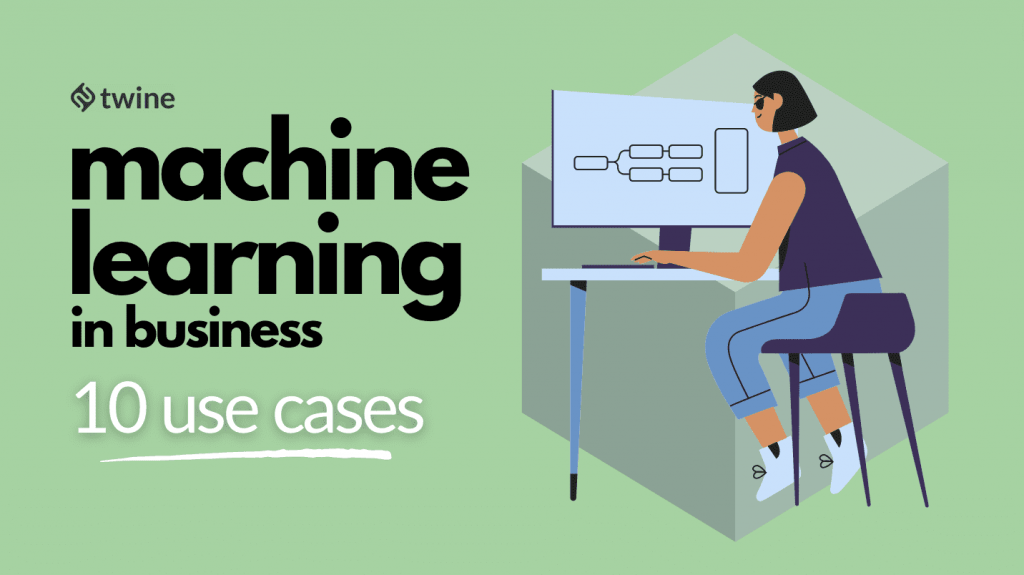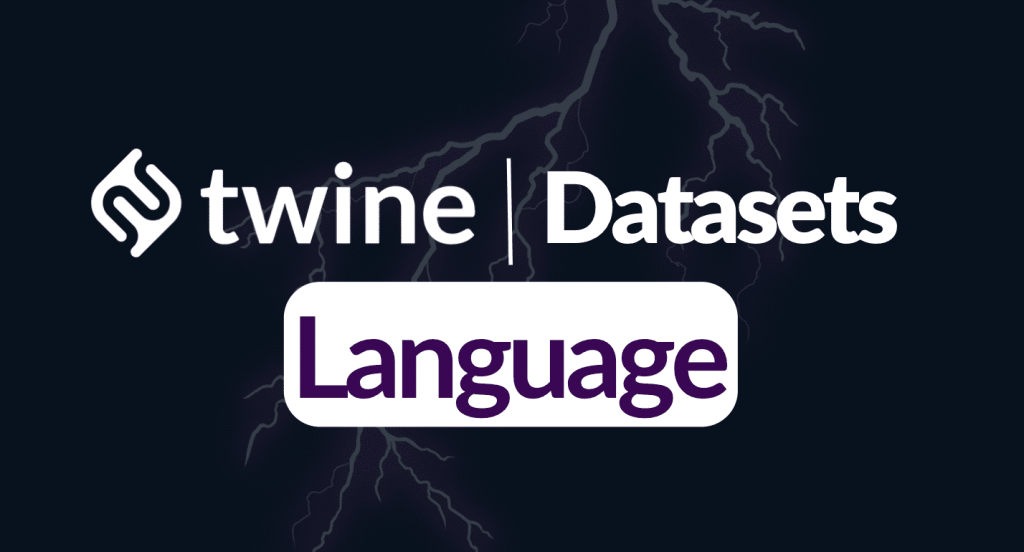
From the corporate world to autonomous vehicles, AI is likely to have a significant impact on businesses. For a time, machine learning (ML) has been a big gamble for tech companies – like Facebook and Google – yet they keep applying it to their business strategy. Machine learning in business was born.
And that’s just the beginning.
Expectedly, more and more businesses will be impacted by AI and ML. In this article, we will focus on the significant changes in the industry – but first, let’s get a handle on the relevant terminology.
What is Machine Learning (ML)?
Machine learning (or ML) refers to a computers’ ability to learn and improve its learning patterns without explicit programming. It is a process that involves developing algorithms that can access data and learn on their own. For that, they need excessive amounts of relevant, ethical data to make predictions.
The Importance of Machine Learning in Business

The advancement of machine learning in business has been fueled by the availability of virtually unlimited data. This has been shortly followed by the development of affordable data storage options and more powerful and less costly computing systems.
More and more sectors of the economy are developing comprehensive data analytics models, to analyze complex data while offering more accurate results.
ML algorithms and AI-enabled solutions are gaining popularity – especially in business analytics-invested domains. Furthermore, machine learning allows businesses to detect valuable opportunities and potential hazards, by introducing and making use of common computer vision tasks, such as object detection with deep learning.
ML applications are virtually limitless due to the constant advancements in this field. Machine learning has been proven to be the most effective technique to create models, strategize, and plan for industries that need to analyze large datasets.
10 Examples of Machine Learning in Business

Machine learning will soon become an indispensable component among companies. Whether a tiny startup, a medium enterprise, or a giant corporation – there will be benefits of incorporating ML into their company makeup.
Below are some of the most apparent benefits of machine learning for businesses:
1. Optimizing marketing campaigns and detecting spam
Customer segmentation and content personalization make it possible to optimize marketing campaigns. How? Machine learning gives businesses insights to improve ad targeting and marketing management.
Spam detection is another excellent application of machine learning, with these solutions having been used for a long time. Before ML and deep learning, email service companies set specific criteria for classifying a message as spam. These days, the filters automatically generate new rules based on neural networks – faster than ever before.
2. Individualization & predictability
We’ve all seen it before. The day begins with you visiting Amazon, reading the product description, and picking out an iPad. A day later, you see an ad on Facebook for the same iPad model. You start noticing it everywhere. Spooky, right?
That is what AI and machine learning is doing for you. These technologies let advertisers modify the way they market. AI is changing the e-commerce landscape in a significant way, giving marketers the advantage of tailoring their marketing strategies while also saving businesses a lot of money.
The retail industry has reduced overstock, improved shipping times, and cut returns by 3 million times as a result of artificial intelligence. Current trends suggest that machines will be able to supplement your staff’s weak spots in the future without having to resort to mass firings.
The increasing use of artificial intelligence will likely continue to affect the advertising industry. With machine learning, marketers will get a deeper understanding of their customers’ minds and hearts and will easily create communications layouts tailored to each customer.
3. Recruiting & HR process improvement
Machine learning and artificial intelligence will almost certainly dominate recruitment as well. AI technologies have advanced substantially since their introduction. As a result, it reduces repetitive tasks, speeding up lots of processes.
Meanwhile, AI-enabled monitoring systems and HRMs are available, which enable businesses to develop job search engines, identify the most qualified individuals, browse resumes effectively, and conduct interviews without forcing candidates to come into the office.
4. Predicting the customer’s lifetime value
Today’s businesses have access to massive volumes of data that can be used to generate valuable business insights. Customer information makes up a substantial amount of company data.
Analyzing it may allow you to learn more about customers, including their purchasing habits, demands, and requirements. A customer lifetime value estimate is a valuable tool to provide personalized offers to your customers.
5. Automates data entry
Duplicated and erroneous data are two of the most severe issues today’s organizations face. Manual data entry errors can be drastically reduced using predictive modeling methods and machine learning. As a result, employees can spend the on tasks that bring more value to the company.
6. Financial analysis
Using machine learning algorithms, financial analytics can accomplish simple tasks, like estimating business spending and calculating costs. The jobs of algorithmic traders and fraud detectors are both challenging. For each of these scenarios, historical data is examined to forecast future results as accurately as possible.
In many cases, a small set of data and a simple machine learning algorithm can be sufficient for simple tasks like estimating a business’s expenses. It’s worthwhile to note that stock traders and dealers rely heavily on ML to accurately predict market conditions before entering the market.
Organizations can control their overall costs and maximize profits with accurate and timely projections. When combined with automation, user analytics will result in significant cost savings.
7. Diagnosis of medical condition
With the help of unique diagnostic tools and successful treatment strategies, ML in medical diagnosis has assisted several healthcare organizations in improving patient health and reducing healthcare costs.
Hospitals, clinics, and medical organizations, in general, use it to produce near-perfect diagnoses, predict readmissions, prescribe medications, and identify high-risk patients. The forecasts and insights are derived from patient records, ethically-sourced data sources, and symptoms.
8. Strengthening cyber security
According to a recent McAfee report, cybercrime costs have surpassed $1.5 trillion worldwide since 2018. Meanwhile, hacking, phishing, or any sort of mischievous activity might result in you losing much more than your money. It can be very detrimental to the reputation of your brand and the privacy of your employees and customers if there is a data leak.
Analytics systems that assure data security and overall cybersecurity are powered by machine learning. ML-based solutions keep administrators up at night by monitoring activities and trying to identify odd user behavior, unauthorized access, breaches, fraud, system weaknesses, and various other issues.
This feature makes machine learning (ML) extremely valuable, especially for financial organizations.
9. Increasing customer satisfaction
With the use of machine learning, customer loyalty and customer experience can be improved. In this case, customer behavior is assessed in past call records, allowing a person or a system to accurately assign the client’s request to the most suitable customer service representative.
Thus, the burden of customer relationship management is significantly reduced through this assessment. Due to these reasons, corporations employ predictive algorithms to provide spot-on product recommendations to their clients.
10. Cognitive services
Another important use of machine learning in businesses is secure and intuitive authentication procedures through computer vision, image recognition, and natural language processing. What is more, businesses can reach a lot wider audiences, as NLP allows access to multiple geographic locations, language holders, and ethnic groups.
Another example of cognitive services is automatic or self-checkouts. Because of machine learning, we have upgraded retail experiences, with Amazon Go being the perfect example.
Key takeaways

Is all the fuss around machine learning in business really justified? The majority of experts say ‘yes’ with a concrete condition: knowing how to apply it to each company’s unique needs and goals.
Machine learning and artificial intelligence are here to stay and will serve industries in the coming years. The key is to understand that machine learning and artificial intelligence aren’t magic spells that work in every circumstance.
Analysts believe that it’s critical to grasp the benefits of adopting machine learning into your company first, assess potential risks and then embed or apply the solution completely. ML is positioned to impact your firm’s operation and production, whether you run a major corporation or a small enterprise.
Think of your connection with this technology as a collaboration. If implemented up to par, your organization will expand and flourish shortly…
Ready to hire? Our marketplace of over 410,000 diverse freelancers has the skills and expertise needed to skyrocket your business. From marketers to designers, copywriters to SEO experts – browse the talented bunch here!



